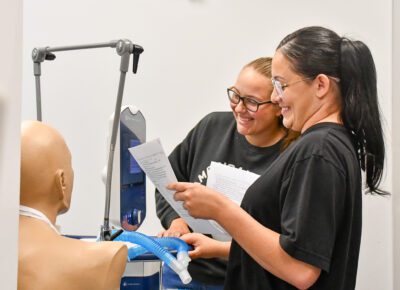
“The Tar Heel State is on a roll,” finds CNBC in its newly announced and highly coveted rankings on America’s top states for business.
“Since taking office for his second term, President Trump has set out to fundamentally change the relationship between the states and the federal government,” says an article by CNBC on how they rank the top states. “That, in turn, has changed the way the states compete for business and jobs.”
Yesterday, CNBC announced that for the third time in four years, North Carolina landed the #1 ranking, citing our “solid economy, a world-class workforce, and a wealth of corporate hospitality.”
When North Carolina led the rankings in 2022, CNBC said our state received the designation for “putting partisanship aside” and our strong economy.
In 2023, CNBC noted North Carolina’s “world-class workforce and booming economy,” but it warned of “growing political divisions that threaten its rankings in education and quality of life.”
In 2024, Virginia just barely beat North Carolina in what CNBC called the closest finish ever, separated by three points in the final tally.
This year, CNBC finds that “while no state is more politically divided than deep purple North Carolina, both parties seem to agree on the importance of keeping business happy.” Since January 2025, the state has announced business expansions or new projects that will yield nearly $17 billion of new capital investment in North Carolina and create more than 20,000 new, good-paying jobs, according to a press release.
The rankings include 10 categories. Here is how North Carolina ranked and the grade assigned in 2025 by CNBC:
- Economy | 3rd, A-
- Infrastructure | 11th, B+
- Workforce | 4th, A-
- Cost of Doing Business | 21st, B
- Business Friendliness | 4th, A
- Quality of Life | 29th, C-
- Technology and Innovation | 13th, B
- Education | 6th, A-
- Access to Capital | 8th, B+
- Cost of Living | 23rd, C+
North Carolina receives an A- on education
Only Virginia, Massachusetts, Illinois, New Hampshire, and Connecticut rank higher than North Carolina on education, according to the rankings. The state received an A- in the 2025 rankings.
CNBC considers the following in its ranking for education.
A state’s education system is its main source for talent and an engine of innovation. It is also a key consideration for companies and families deciding where to put down roots. We look at multiple measures of K-12 education including test scores, class size and spending. We consider the number of colleges and universities in each state as well as long-term trends in state support for higher education. We also consider historically Black colleges and universities (HBCUs), which companies are increasingly seeking to partner with. With the search for talent expanding to include employees with marketable, industry-recognized skills, we measure each state’s community college and career education systems.
— CNBC
N.C. Commerce Secretary Lee Lilley said, “From our world-class workforce to our strategic investments in infrastructure, education, and innovation, North Carolina continues to lead the way as a place where businesses thrive and communities prosper.”
In an email, myFutureNC noted, “North Carolina ranks in the top tier nationally for STEM talent and vocational education,” according to the rankings. “It also ranks third in the U.S. for net in-migration of college-educated workers — a critical metric for our talent pipeline.”
The state’s laser focus on the state’s 2 million by 2030 goal, the organization says, ensures “we have the skilled workforce necessary to fill the jobs we are so fortunate to attract, create, and retain.”
In celebrating the ranking, state leaders lifted up North Carolina’s “excellent community college system” and highlighted the work of several recently established councils.
As previously reported by EdNC, Gov. Josh Stein has been creating committees, task forces, and councils where groups of leaders can come together and work across difference on the issues facing North Carolina.
The Council on Workforce and Apprenticeships — a bipartisan group directed to find strategies to strengthen North Carolina’s workforce development and expand access to good jobs with good wages — recently released its first report, which outlines 11 goals to ensure more people have the skills to build strong careers and bright futures in a changing economy, according to the press release.
To address North Carolina’s child care crisis, Stein launched a Task Force on Child Care and Early Education, which seeks to make high-quality child care more accessible, affordable, and sustainable. It also recently released its first report, proposing initial solutions.
Stein also established the Advisory Council on Student Safety and Well-Being to ensure that the state’s public schools support students’ learning growth and foster an engaging environment.
Moving forward in the face of uncertainty
In an interview, Stein told CNBC that he has no intention of asking the N.C. General Assembly to raise taxes and wants taxes to be as low as possible, but that given the fiscal uncertainty created by federal policy the state may need to reconsider further tax cuts.
Stein said he anticipates greater state spending on health insurance and food assistance so he is encouraging the legislature to “go slow” when it comes to fiscal policy.
CNBC notes that “federal budget cuts, tariffs, and the recovery from Hurricane Helene could threaten” the state’s dominance in the rankings in the future, but the rankings find our state well positioned to navigate “the opportunities and the risk” and says we are steering “into those headwinds from a strong position.”
Recommended reading



